Organic Farming & Horticulture
Although it was rarely to be seen or heard twenty years ago, no one can be ignorant of the existence of Organic farming and horticulture and Biodynamic produce (Demeter) now. Every supermarket is increasing its shelf space dedicated to organic produce. Health shops and health food shops abound and it usually seems to be those shelves that empty first. Even restaurants are catching up. There is almost no food or drink commodity that cannot be obtained in organic form. The price is a little higher than ‘chemical food‘, but the quality, flavour and health of the food bears no comparison.
 No need to suffer a size penalty with organic or biodynamic methods – is that a small wheelbarrow or a big pumpkin?
No need to suffer a size penalty with organic or biodynamic methods – is that a small wheelbarrow or a big pumpkin?
Organic agriculture and horticulture are carried out in as sustainable and environmentally-friendly fashion as reasonably possible. ‘New’ methods of keeping up production without damaging our environment are constantly being devised. Organic farming is expanding in response to popular demand.
Organic livestock farming uses natural medicine, wherever possible, and maintains very high welfare standards for its animals, when subscribing to Soil Association or BDAA standards.
Organic farming commonly utilises homeopathy (homeopathic treatment) for its animals – also herbs (herbal medicine) and anthroposophical medicine.
Sources of information and details of producers and retailers can be obtained from:
The Soil Association cites 6 reasons for buying organic produce:
- Organic food is produced without chemical pesticides, fungicides and herbicides and is full of natural flavour.
- Organic farming has banned the use of all genetically-modified organisms (GMOs), including seeds, crops and animals. Even the food of organically-farmed animals is GMO-free.
- Organic standards require farmers to care for the countryside. This includes maintaining hedgerows, streams and other natural features and planting trees.
- Organic standards prioritise animal welfare. Livestock are given no routine antibiotics or growth-promoting drugs.
- Organic farms are good for wildlife. Surveys show that more birds and butterflies are found on organic farms.
- Organic farms generally employ more people, thus helping to safeguard the rural fabric.
To this impressive list, the AVMC would add that buying chemically-produced food funds the degradation of our environment, the reduction of biodiversity and the march of global commercialisation. Such food may seem cheaper but the hidden cost is inestimable.
See also: Farm Assurance
N.B.: Not all organic standards are as rigorous as those of the Soil Association.
he AVMC provides a service to Organic and Biodynamic Farmers, whether advising on homeopathic treatments, setting up health plans, discussing holistic farm management etc. Soil Association members can apply for discounted fees.
Particular health problems that we meet regularly are: ringworm, mastitis, New Forest eye, infertility, chlamydia, abortion, MMA, pneumonia, lameness, abscess, foul in the foot, strawberry foot rot, pododermatitis, meningitis.
The smallholding fields and gardens at the AVMC are managed on strictly organic principles and for the most part biodynamic, although we have not officially signed up to the Soil Association Symbol Scheme or the Demeter Scheme.
